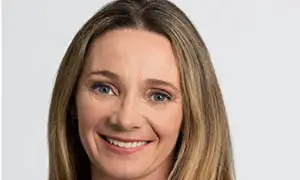Three certified CDI specialists share their expertise
Rita Parmar, CHIMA’s Clinical Documentation Improvement (CDI) community facilitator, recently connected with three certified CDI specialists to talk about the key roles they play in the health care system and to learn about the kinds of diagnoses they regularly review.
For CDI Week, July 19-23, these three Ontario-based specialists share their insights: Susan Molloy (RN, CCDIS, of London Health Sciences Centre), Shayda Khalili (CHIM, CCDIS, of Royal Victoria Regional Health Centre), and Prakash Shah (CCDIS, of Scarborough Health Network) discuss which key performance indicators (KPIs) are worth monitoring, which stakeholders they recommend be involved in creating a successful CDI program, which patient outcomes are produced from their work, and more.
As the first CDI specialist to be hired at Toronto’s Hospital for Sick Children (SickKids) in 2019, Prakash Shah draws on his more than 20-years of experience in various health care roles such as general practitioner, public health lecturer, and medical officer. Having worked as a research assistant at the Centre for Global Health Research and as a physician coder, Prakash knows a thing or two about ICD-10 and how CDI is connected with coding: “CDI is often linked to coding, which is very, very true,” he says. “But there is an important dimension: the need to collect quality data and use it to improve hospital practices and processes, providing the ultimate benefit to patients.”
Any time I get to discuss CDI with a physician is a positive event. Initially, there may be some resistance, but once the significance of the query and the significance of CDI are explained, the physician gets on board. And actually, they get excited about the value this work has.
Susan Molloy, RN, CCDIS, London Health Sciences Centre
It’s a sentiment echoed by Susan Molloy, who says, “I’m proud knowing that our CDI and health information management team contributes to high-quality data” at London Health Sciences Centre (LHSC) in London, Ont. As a member of the original CDI team pioneered at LHSC in 2013, Susan brings her 35 years of nursing clinical expertise and critical thinking skills to identify physician query opportunities and education. “The chart is the main communication tool for all stakeholders,” she says, “and CDI can make a difference by ensuring accurate data and ensuring that the true story of the patient is reflected. CDI gives me the opportunity to make a difference in patient care by encouraging clear, concise, accurate documentation.”
Susan also sheds light on the evolving relationship between CDI specialists and physicians: “Any time I get to discuss CDI with a physician is a positive event. Initially, there may be some resistance, but once the significance of the query and the significance of CDI are explained, the physician gets on board. And actually, they get excited about the value this work has.”
With more than 17 years of experience as a family physician outside of Canada, Shayda Khalili also brings a wealth of knowledge to her position as a certified CDI specialist in Barrie, Ont. “I have been working with physicians and coders to advance medical documentation,” she says of her role at Royal Victoria Regional Health Centre. “And recently we have seen a notable, positive outcome as documentation has improved drastically and revenue has increased due to this collaborative initiative.” She notes that while currently, the CDI community across Canada is small, “we have a large impact in health care. And with further support, we can continue to grow and expand the CDI program.”






